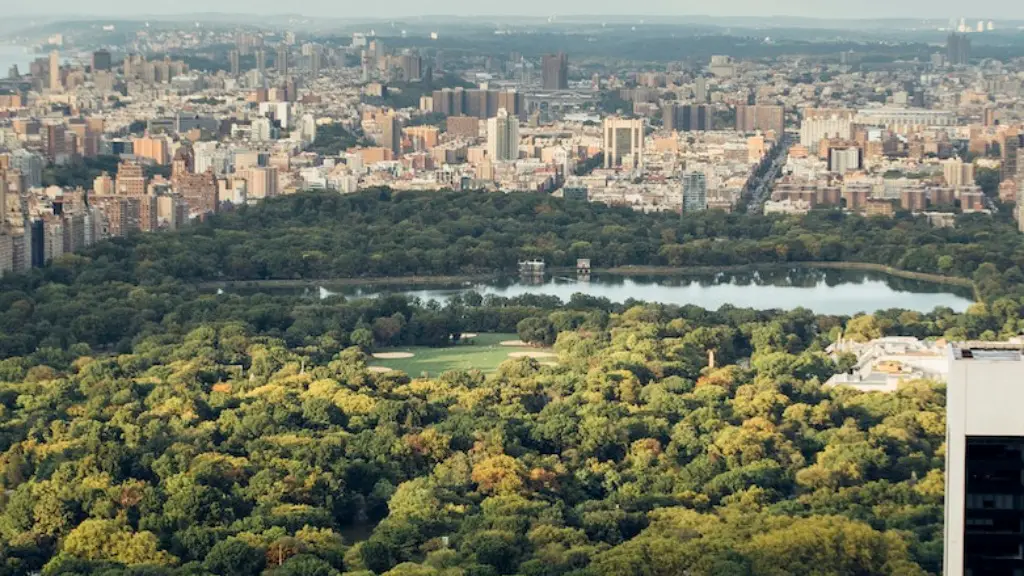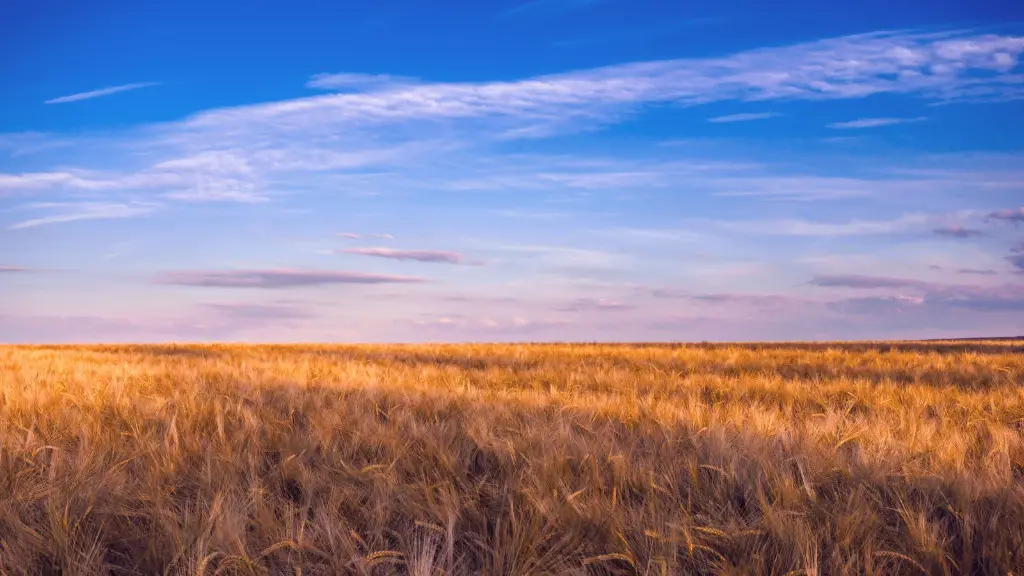The accelerating effects of climate change and global warming are impacting nations around the world in a variety of disturbing ways. Geography, the study of all aspects of Earth’s physical, cultural, political, and economic influences, is highly relevant to this issue. In essence, global warming is becoming a critical component of Geography, as the two realms are strongly intertwined.
The temperature of the planet has been steadily increasing over the past century, with the hottest global temperatures ever recorded in 2020. This is having far-reaching implications on the Earth’s physical geography, with sea levels rising, snow and ice melting, and the atmosphere becoming more humid in many places. In addition, it is leading to the flooding of coastal areas, destruction of habitats for plants and animals, and drought in other parts of the world. These effects, especially when combined, can have catastrophic impacts on the global economy, cultures, and societies.
Geography is a tool for understanding the scope of global warming and can help predict some of the physical changes it causes. Factors such as air temperature, elevation, latitudinal location, and wind patterns are all taken into account. Additionally, the current population trends, economic development patterns, and land-use activities of any given region have an effect on the intensity of the change. All of these elements can be studied and analyzed through Geography to better understand how different areas are affected differently by these environmental alterations.
In certain parts of the world, like the Arctic, the effects of global warming are particularly striking. Rapid melting of glaciers and polar ice caps has brought noticeable changes in the physical geography of the region. This melting of ice is having ripple effects on wildlife and communities, with dozens of species already affected and human populations forced to migrate in order to avoid the damaging effects of prolonged storms, flooding, and rising sea levels.
It is not just the Arctic that is feeling the effects of global warming. In tropical areas, the heightened temperatures and humidity can lead to more extreme weather patterns, such as hurricanes, as well as an increase in diseases like malaria and dengue fever, posing a threat to human health. Furthermore, water scarcity is becoming an acute problem due to changing precipitation patterns and increased evaporation from higher temperatures.
From a scientific perspective, the relationship between Geography and global warming is undeniable. Even small changes in the Earth’s climate can have an effect on the people and places that inhabit it, far away from the local level. The impacts of global warming can be studied, mapped and predicted via Geography, giving scientists, policy makers, and citizens the tools they need to help mitigate the effects of climate change.
Taking action on global warming is necessary to prevent further destruction and to create a sustainable future. Governments and the general public alike should strive to understand the intimate relationship between geography and global warming to help inform smart policy decisions and enable better-informed decision-making.
There are certain things that can be done quickly and relatively easily to curtail global warming. These include transitioning to renewable energy sources such as solar and wind power, reducing deforestation and increasing green spaces, and increasing public transportation options. One important method that can be used to help preserve our environment is sustainable consumption and production, which can help counterbalance the effects of climate change and reduce pollution.
The time for action on global warming is now, and we all have a part to play. It is critical that we understand the link between Geography and global warming in order to effectively face this challenge, as the physical features of the planet and our actions of today will shape the world of tomorrow.


